What Does a Gas Leak Smell Like? Find Out if You Have a Gas Leak
The National Fire Protection Association (NFPA) reports that local fire departments respond to an average 125,000 home gas leaks per year. That’s a hefty number, and a clear call to action for Texans regarding gas leak detection and prevention.
Gas leaks are an invisible threat that can stealthily infiltrate homes and workplaces, presenting dangers from explosions to more subtle (yet dangerous) health impacts. The first sign of a gas leak is usually the smell, which is likened to the scent of rotten eggs. While natural gas is odorless, a substance called mercaptan is added to give it that detectable, distinctive odor and alerts you to potential leaks.
In this guide, we’ll cover the essentials of natural gas leaks, including the signs and symptoms, what to do if you smell gas, and the safety steps to follow in order to prevent and respond to gas leaks in your home.
What Causes Gas Leaks?
Gas leaks often sneak in through faulty gas appliances like stoves, water heaters, or furnaces. They can also stem from aging gas lines, lack of maintenance, or botched installations. It’s important to tackle these issues upfront with regular inspections to avert potential gas leaks.
That’s because they carry severe repercussions, from property damage to life-threatening illness. When gas congregates in enclosed spaces, it’s a recipe for explosions or fires, endangering lives and properties. Prolonged exposure to gas can also trigger health problems like respiratory issues and neurological disorders.
What Does a Gas Leak Smell Like?
Natural gas, a common household fuel, is odorless and colorless, making leak detection solely based on its inherent properties a challenge. Thankfully, an odorant named mercaptan (which smells like rotten eggs) is added to natural gas as an indicator. This sulfide-based compound ensures that a gas leak creates a hard-to-ignore odor, prompting a quick response to what could be a dangerous situation.
Other Signs of a Gas Leak
While the distinctive odor of rotten eggs is a telltale sign of a gas leak, it’s not always the most reliable one. Don’t just rely on your sense of smell–one person’s ability to sniff out a gas leak might differ from that of another due to age, health conditions, or lifestyle choices such as smoking. In this section, you’ll learn what else to look for.
Signs in the Home
These potential signs of a gas leak should also prompt you to take action:
- Hissing sounds near gas appliances, pipelines, or meters is a red flag.
- Dead plants could also point to a gas leak, which can have a detrimental effect on vegetation. If you notice plants in your home or garden suddenly wilting, turning yellow, or dying for no apparent reason, it could be a sign.
- Bubbles or frothing in standing water (such as puddles or stagnant areas) could be another gas leak indicator. If you observe this phenomenon, consider the possibility of a gas leak and take appropriate measures.
- Unexplained physical damage to gas lines, appliances, or nearby structures are another potential sign. This might include rusting, corrosion, or discolored metal.
Physical and behavioral symptoms
Gas leaks can harm your health and wellbeing. Here are some symptoms to watch out for:
- Headaches
- Dizziness
- Nausea
- Fatigue
- Difficulty breathing
- Chest pain
- Eye or throat irritation
The severity of these symptoms can vary, influenced by the gas concentration, exposure duration, and individual sensitivities. Being vigilant about these signs and symptoms can steer you clear of potential dangers posed by gas leaks – especially in Texas, where around one-third of homes are heated by natural gas.
Carbon monoxide poisoning shares many of these same symptoms, with the possible exception of eye and throat irritation (which are less common). Immediate medical attention is critical for anyone who may have carbon monoxide poisoning.
What To Do if You Suspect a Gas Leak
With stakes this high, Texas residents need to be ready to handle gas leak situations quickly and effectively. Below is a step-by-step guide on what to do if you smell natural gas or suspect a gas leak:
- Leave the area. If you smell gas or suspect a gas leak, the first and most important step is to evacuate. Leave the building and move a safe distance away from the potential source of the gas leak.
- Avoid using any electrical devices or open flames. Gas leaks can be highly flammable, and even a small spark can ignite the gas and cause an explosion or fire. Don’t use any electrical devices in or near the building; light switches, appliances, and even cell phones can spark and create an explosion if there’s a high enough concentration of flammable gas. And of course, don’t light matches, lighters, candles, or any open flames.
- Do not attempt to locate the leak. While it may be tempting to try and find the source of the leak, locate your gas shutoff valve, or cut off your gas supply, leave any next steps to the professionals. Gas leaks can be difficult to detect and locate, and attempting to do so without proper training and equipment can be extremely dangerous.
- Call the gas company, utility company, or emergency services. Once you are in a safe location, immediately call your local gas company or emergency services. They will have the necessary resources and expertise to handle the situation. Give the detailed information about the suspected gas leak, including the general location and any noticeable signs or symptoms.
How To Prevent Gas Leaks
While it is essential to know how to identify and respond to a gas leak, it is equally important to take proactive measures to prevent them from occurring. Here are some tips to help you prevent gas leaks:
- Regular maintenance. Schedule regular inspections and maintenance for gas appliances, heating systems, and pipelines. This will help you identify any potential issues early on and prevent them from developing into gas leaks.
- Proper installation. Ensure that gas appliances and systems are installed correctly by qualified professionals. Improper installation can lead to gas leaks and other safety hazards.
- Be mindful of gas odors. Familiarize yourself with the distinct smell of natural gas. If you detect the smell of rotten eggs or sulfur-like odor, it may indicate a gas leak. Take immediate action by following the steps outlined in this article.
- Install gas detectors and alarms. Consider installing gas detectors and alarms in your home or workplace. These devices can detect even small traces of gas and alert you to a potential leak, allowing for early detection and prompt action.
Gas Leak Detection Tools
Gas leak detection devices have evolved significantly over the years, offering a wide range of options to ensure accurate and efficient detection of gas leaks. These devices are designed to detect the presence of gas in the air and provide early warnings to prevent potential disasters. Let’s explore some of the most commonly used gas leak detection tools available today:
Portable gas detectors are compact, handheld, easy to use, and show immediate results. They use sensors to detect various types of gasses, including natural gas, propane, and carbon monoxide. Portable gas detectors are commonly used by construction, plumbing, and HVAC professionals to quickly identify gas leaks and ensure safety on the job.
Fixed gas detectors are permanently installed in specific locations, such as industrial facilities, commercial buildings, or residential homes. They continuously monitor the air for the presence of gas and provide real-time alerts when gas levels exceed safe limits. Fixed gas detectors are often connected to a central control panel, allowing for centralized monitoring and control.
Ultrasonic gas leak detectors use high-frequency sound waves to detect the sound produced by a gas leak. These devices are particularly useful in detecting leaks in pressurized systems, such as gas pipes and storage tanks. Ultrasonic detectors can identify leaks that may not be easily detectable by other means, making them valuable for industrial use.
Making Texas Homes Safer and More Energy Efficient
Natural gas leaks are a big safety concern in Texas and beyond. Following preventative safety precautions, recognizing the telltale signs (like the distinctive smell or physical symptoms), and knowing what to do in the event of a gas leak can save lives. With this knowledge, homeowners and residents from Odessa to Houston can protect their homes against gas leaks and make Texas a safer place.
Empower your Texas home against gas leaks and ensure a secure, efficient energy environment. Payless Power prioritizes safety and cost-efficiency as much as you do. Sign up today for an energy plan that’s tailored to your needs and budget. Your smart choice today paves the way for a safer tomorrow.
What our customers are saying
See why our power customers say we're the best electricity provider in Texas!
I was worried about getting electricity for my home through a prepaid company. I was calling around to see different rates then going through all the hassle of credit checks while dropping points each…
I have been with this company for several years and have been very happy since. Even when I moved, they made my usually stressful situation very easy and carefree. I recommend them to everyone that I…
I have enjoyed the service for 2 years now. In the beginning this service was planned to be temporary but with the service being so effective for me i decided to keep it for the long haul. I’m a happy customer.






